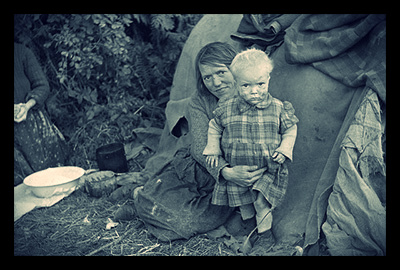World Refugee Day

If the current refugees made up their own country, it would be the 26th largest in the world.
Commemorating World Refugee Day, the United Nations High Commissioner for Refugees stated that there are currently 51.2 million asylum-seekers, internally displaced people and refugees worldwide.
The United Nations said that over 50 million people, an increase of six million from previous years, were forced from their homes by the end of 2013, which surpasses World War II peak numbers. Tensions in South Sudan, the Central African Republic and Syria have caused the increase, but the figure is expected to rise even further as the situation in Iraq worsens.
Currently, there are 1.2 million people searching for asylum, 33.3 million internally displaced people and 16.7 million refugees worldwide. About half of these uprooted people are children.
This has put much pressure on UNHCR and other efforts to provide refugees with food, education and healthcare. During 2013, conflict and violence drove about 32,200 people every day out of their homes, as opposed to 14,200 in 2011 and 23,400 in 2012.
In a report on the refugee crisis, UNHCR stressed the problems that host countries are having dealing with the flood of refugees. 86 percent of refugees worldwide find shelter in developing countries, which causes increased strain on those countries’ resources.
Syria was once the world’s second largest refugee-hosting country. The current Syrian conflict has moved it to the second largest refugee-producing country. Neighbors of Syria, such as Jordan, Turkey and Lebanon, are now facing problems on how to deal with this influx of refugees. Jordan, which has been receiving up to a thousand refugees a day, has been attempting to decelerate the wave of refugees across its border, with little luck.
The current crisis in Iraq is also a major problem. UNICEF recently raised Iraq’s crisis to a level three humanitarian disaster, the most severe label. U.N. officials said they were rushing to prepare for the projected 1.5 million displaced people. U.N. High Commissioner for Refugees António Guterres stated that humanitarians can only do so much, and solutions lie within political systems.
“We are seeing here the immense costs of not ending wars, of failing to resolve or prevent conflict,” he said. “Peace is today dangerously in deficit. Humanitarians can help as a palliative, but political solutions are vitally needed. Without this, the alarming levels of conflict and the mass suffering that is reflected in these figures will continue.”
— Colleen Moore
Sources: Kuwait Times
Photo: Flickr
